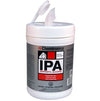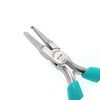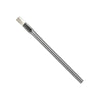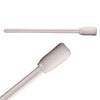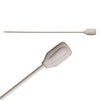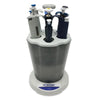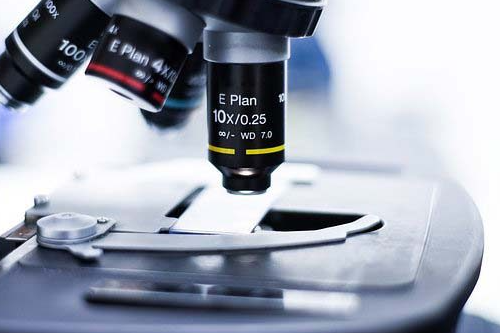- No products in the cart.
How to Clean and Maintain Your Microscope to Prevent Repairs
Oct
07
2023
Microscopes are invaluable tools in various fields, from scientific research and medical diagnostics to education and manufacturing. Their precision optics and intricate mechanisms demand regular care and maintenance to ensure optimal performance and longevity. In this comprehensive guide, we'll explore the essential steps to clean and maintain your microscope, helping you prevent the need for costly repairs and ensuring the longevity of this crucial scientific instrument.
1. Start with a Clean Environment
Before you even touch your microscope, ensure that the surrounding environment is clean and free from dust and debris. A dedicated, well-organized workspace helps minimize the risk of contamination during maintenance.
2. Dusting and Brushing
Dust and microscopic particles can accumulate on the microscope's surfaces, affecting both the optics and mechanical components. Use a soft brush or a can of compressed air to gently remove any loose particles. Pay special attention to the eyepieces, objectives, and the stage area.
3. Optics Cleaning
-
Eyepieces and Objectives:
- Start by using a lens brush or air blower to remove loose particles.
- For fingerprints or smudges, use a lens-cleaning solution or a mixture of distilled water and isopropyl alcohol. Apply the solution to a lens tissue or a microfiber cloth and gently wipe the optics in a circular motion.
- Avoid using excessive force, and never spray cleaning solutions directly onto the lenses.
-
Condenser and Light Source:
- Clean the condenser lenses using the same lens-cleaning procedure.
- Ensure the light source is clean and free from dust, as any particles can affect the quality of illumination. Use a soft brush to remove any loose debris.
4. Mechanical Components
-
Stage and Focus Mechanism:
- Wipe the stage with a damp cloth to remove any spilled immersion oil or specimen residue.
- Check the focus mechanism for smooth operation. If it feels stiff or uneven, consult the microscope's manual for guidance on lubrication. Use manufacturer-recommended lubricants sparingly.
-
Moving Parts:
- Lubricate moving parts, such as the turret and mechanical stage, according to the manufacturer's recommendations. Over-lubrication can attract dust and compromise performance.

5. Electrical Components
-
Cords and Connections:
- Inspect power cords and connections for any signs of wear or damage. Replace any frayed cords immediately.
- Ensure electrical components are clean and free from dust. Use compressed air to gently blow away any accumulated particles.
6. Regular Calibration
- Regularly calibrate your microscope to maintain accuracy in imaging and measurements. Calibration tools and procedures can vary, so refer to your microscope's manual for specific guidelines.
7. Storage and Covering
- When your microscope is not in use, cover it with a dust cover to protect it from environmental contaminants.
- Store the microscope in a clean, dry place, away from direct sunlight and extreme temperatures.
8. Periodic Professional Servicing
- Consider periodic professional servicing by certified technicians. They can perform in-depth inspections, cleaning, and adjustments that may be beyond the scope of routine maintenance.
Microscope Care Excellence at Lab Pro
Lab Pro excels in microscope services, offering thorough cleaning and maintenance for peak performance. Our expert team ensures crystal-clear optics, addressing both mechanical and optical issues to extend your equipment's lifespan. Trust Lab Pro for precision and quality in microscope care.
Conclusion
Proactive and regular cleaning and maintenance are key to preserving the performance and lifespan of your microscope. By incorporating these practices into your routine, you not only prevent the need for frequent repairs but also ensure that your microscope consistently delivers accurate and reliable results. Remember, each microscope is unique, so always refer to the manufacturer's guidelines and specifications for the most effective cleaning and maintenance procedures. Taking the time to care for your microscope is an investment in the precision and longevity of this essential scientific instrument.
For over 40 years, Lab Pro Inc. has been committed to delivering the highest quality Microscopes, microscope repair services, lab equipment, lab supplies, Excelta hand tools, reagents, distance learning kits, and cleanroom PPE apparel. Renowned by global medical device companies and laboratories, we ensure exceptional quality in every product. Contact us online or call 888-452-2776 to learn more. Discover top-notch lab supplies and elevate your experiments today!









